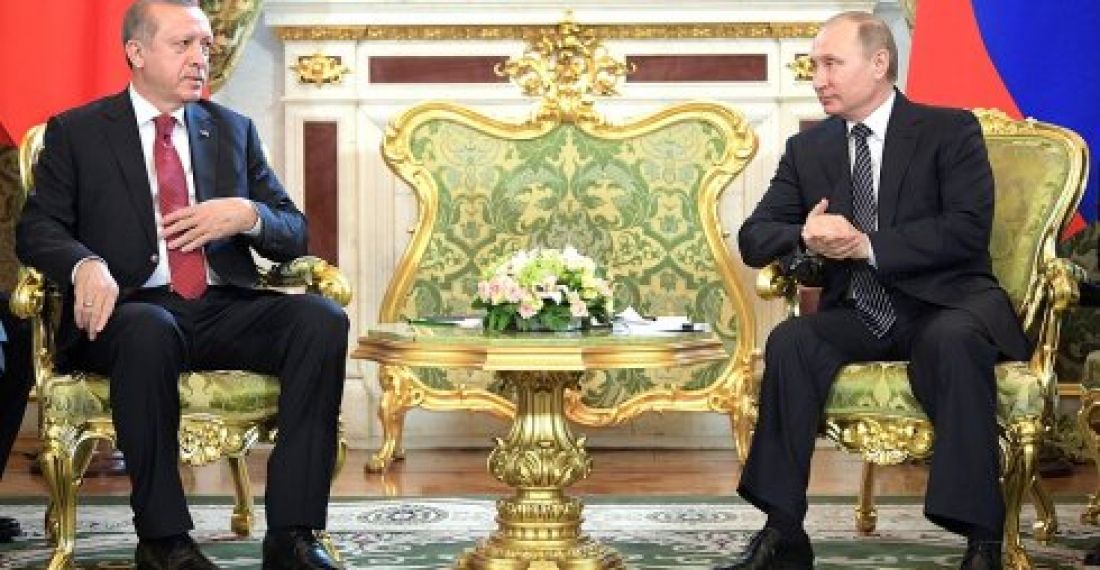Russian President Vladimir Putin is today hosting his Turksih counterpart Recip Tayip Erdogan in Moscow. After a tete-a-tete meeting Erdogan and Putin will attend the sixth High-Level Cooperation Council between Russia and Turkey.
The two sides are expected to agree a series of arrangements on economic, cultural and tourism cooperation, which are due to be revealed in a news conference late Friday.
After the meetings, the Turkish delegation will be hosted at a banquet.
Before returning to Turkey in the evening, Erdogan will lay a wreath at the Tomb of the Unknown Soldier near the Kremlin wall.
An announcement on the Kremlin website said that"the leaders will discuss the entire scope of Russian-Turkish relations with a focus on the further restoration of mutually beneficial trade and economic ties. Specifically, the agenda includes joint projects to build Turkey's first nuclear power station, Akkuyu, and the construction of the Turkish Stream gas pipeline."
The presidents are to exchange views on topical issues of the regional agenda, primarily prospects for further cooperation in combating international terrorism and settling the Syrian crisis, according to Kremlin.ru
The last meeting between Erdogan and Putin was held in August after Turkey and Russia patched up the fallout from the November 2015 downing of a Russian jet over the Turkey-Syria border.
Since the summer, Russia has relaxed the sanctions imposed on Turkey in response to the jet incident and the countries have worked together to bring a cease-fire and political solution to Syria.
Relations were tested in December when the Russian ambassador in Ankara, Andrey Karlov, was killed in the capital. However, Putin declared the shooting a "provocation" designed to undermine Turkey-Russia relations.
source: commonspace.eu with Anadolu News Agency






